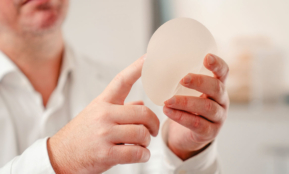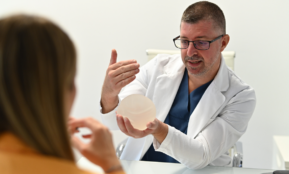Aesthetics
Face
The most modern facial treatments help you look younger, more elegant and happier.
Body
Feel comfortable in your body and correct sources of discomfort.
Chest
Make your wish for a better appearance come true and restore your self-confidence with aesthetic correction.
Hair and scalp
Minimally invasive solutions for hair loss and a natural look.
Issues
Find solutions to some of the most common aesthetic problems.
Treatments
Treatments

Hair and scalp mesotherapy
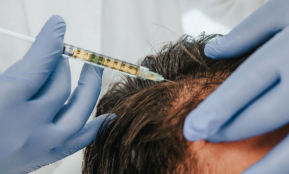
Thinning hair therapy with your own blood

Trichotest – DNA analysis of hair loss and baldness

Hair loss in women – causes and how to prevent it

Hair loss in men – causes and how to prevent it
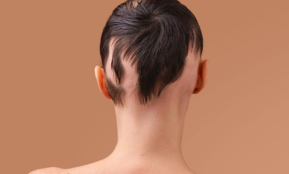
Alopecia – hair loss
FACE
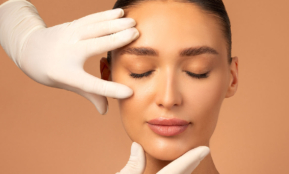
BODY
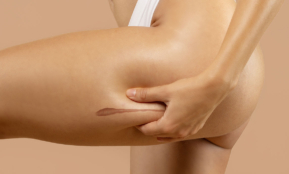
Implantology Center
Different methods of solving the problem of missing one or more teeth.
Prosthetics
The most common solution in cases of functional or aesthetic tooth damage.
Aesthetic Dentistry
Harmonious tooth shaping and tooth color correction according to your wishes.
General Dentistry
Modern and timely diagnostics, treatment and dental hygiene are the key to the health of your teeth.
Issues
Find solutions to some of the most common aesthetic problems.
About us
Locations
Consequences of weak and damaged tooth structure
-
Food difficulties
Damaged teeth can make it difficult to chew food, which can lead to discomfort or pain when eating. Due to fear of pain or discomfort, people with weak teeth often avoid certain types of foods, such as hard, sticky, or crunchy foods.
-
Speech problems
Damaged or missing teeth can make it difficult to pronounce certain sounds, which can cause slurred or slurred speech. Speech problems can reduce self-confidence and cause discomfort in social situations.
-
Aesthetic problems
Weak and damaged teeth can negatively affect the aesthetics of your smile, which can result in reduced self-confidence and dissatisfaction with your appearance.
People with damaged teeth may avoid smiling or social interactions due to feelings of discomfort. -
Pain and discomfort
Damaged teeth are often more sensitive to hot, cold, or sweet foods, which can cause pain and discomfort when consuming food or drinks.
In more severe cases, tooth damage can lead to chronic pain, which can significantly affect quality of life. -
Health problems
Damaged teeth can provide an entry point for bacteria, increasing the risk of oral infections and potentially more serious health problems.
Periodontal disease, which occurs due to poor oral health, can lead to gingivitis and other health problems. -
Psychological influences
Dental problems often lead to a decrease in self-confidence and self-esteem, which can affect personal and professional life.
People with bad teeth may feel anxious or stressed during social interactions, which can lead to isolation.
Restorative options for repairing damaged teeth
-
Dental veneers
Ceramic veneers are one of the most common solutions in modern cosmetic dentistry for achieving a 'Hollywood white smile'.
These are thin, transparent porcelain sheets that are glued to the front surface of the teeth, and can be used to correct many irregularities such as the shape, size, position, and color of the teeth.
If you want to regain your confidence, veneers are the ideal solution for achieving harmoniously shaped teeth and a sparkling white smile. -
Fillings - fillings
Aesthetic (white) composite fillings are the ideal solution if you want to achieve completely natural-looking teeth after damage.
They are used in cases where extensive restoration of dental tissue is not required, and are made in the office during a single visit. -
Inlay, Onlay, Overlay
Inlay, Onlay and Overlay are prosthetic tooth replacements.
They are used for the reconstruction of a tooth damaged by caries or trauma, similar to conventional fillings.
They are an excellent alternative to crowns and for those patients who prefer minimally invasive therapy.
They are made in a dental laboratory and are a superior solution to classic fillings from the aesthetic and functional side. -
Dental crowns
Ceramic crowns, also known as porcelain crowns, porcelain teeth, porcelain veneers, are the most common prosthetic solution in cases of functional or aesthetic tooth damage.
They are made of ceramic that perfectly imitates the color of the tooth, and the crown itself protects the tooth from further damage and prevents its further decay.
Prevention of further tooth damage
-
Brush your teeth regularly.
Brush your teeth at least twice a day – in the morning and before bed, using a soft-bristled toothbrush and toothpaste that contains fluoride.
Brush for at least two minutes and pay attention to all surfaces of your teeth – the outside, inside and chewing surfaces. -
Use dental floss daily.
Dental floss removes plaque and food debris from between teeth and below the gum line, an area that a toothbrush cannot reach.
Floss at least once a day, ideally before brushing in the evening. -
Use mouthwash
Antibacterial mouthwash helps reduce plaque, bacteria and bad breath. Look for water that contains fluoride for extra protection against tooth decay.
-
Proper nutrition
Avoid foods that are too sweet and acidic, such as sweets, carbonated drinks, citrus fruits, and juices, as they can cause cavities and damage enamel.
Eat balanced meals with plenty of fruits, vegetables, whole grains, lean proteins, and dairy products, which are rich in calcium and strengthen teeth. -
Visit the dentist regularly.
Visit your dentist at least twice a year for a professional cleaning and checkup, even if you have no visible problems.
Regular check-ups help in the early detection and treatment of problems such as cavities, gum disease, or other oral problems.
BLOG SUGGESTION


